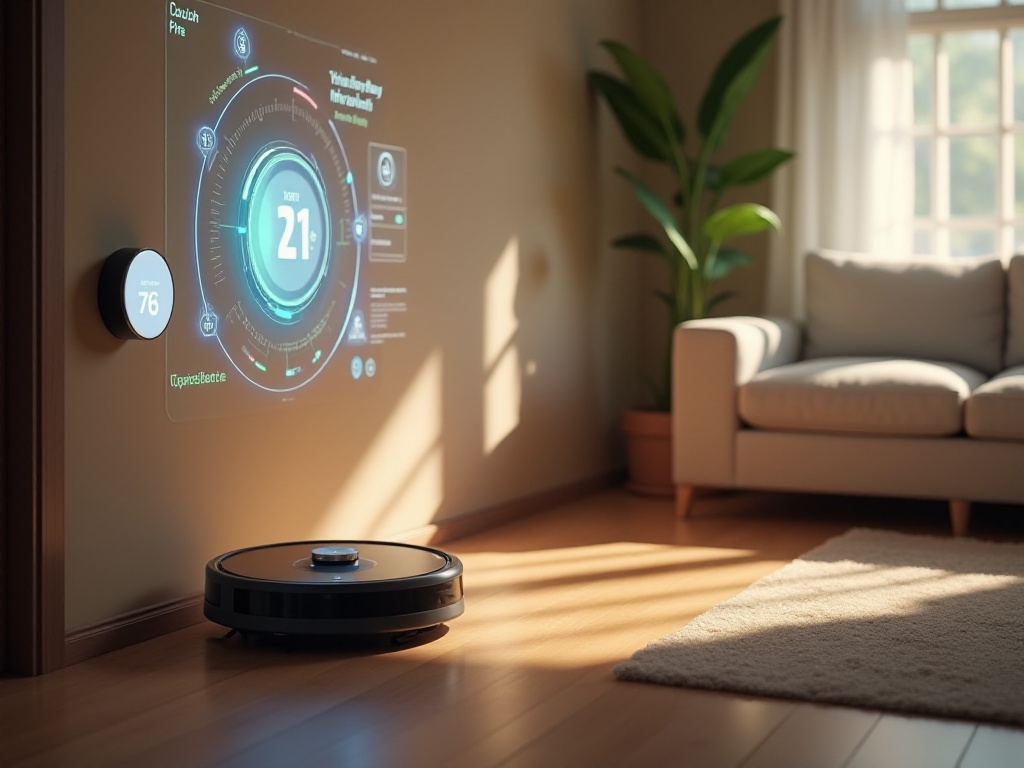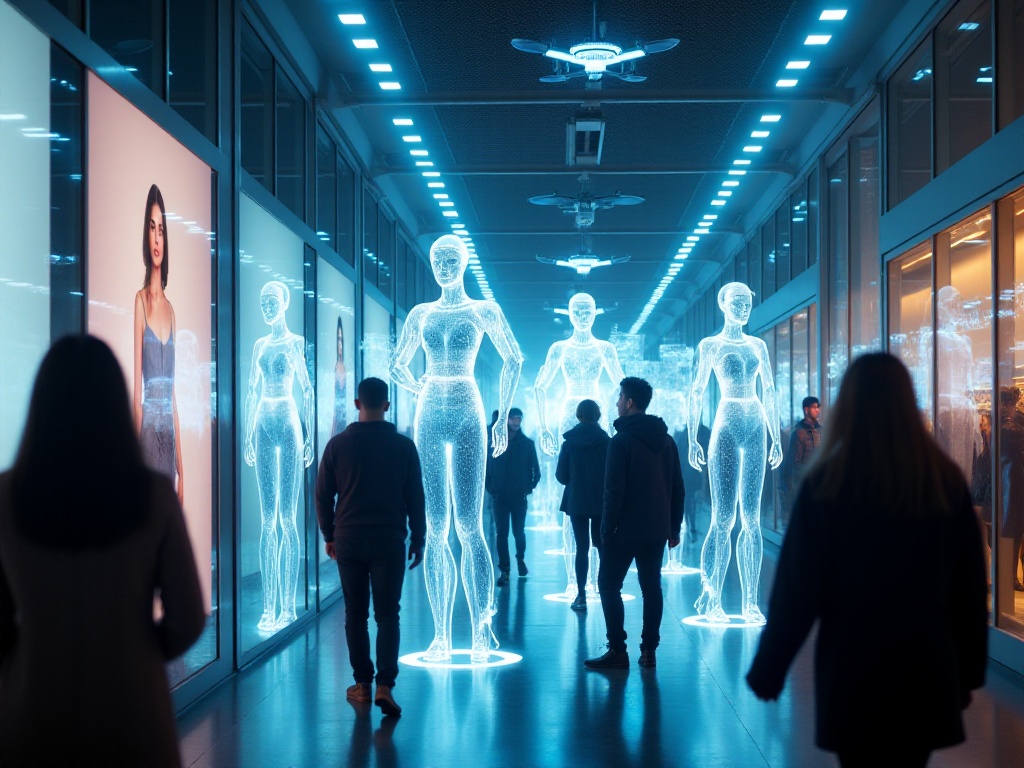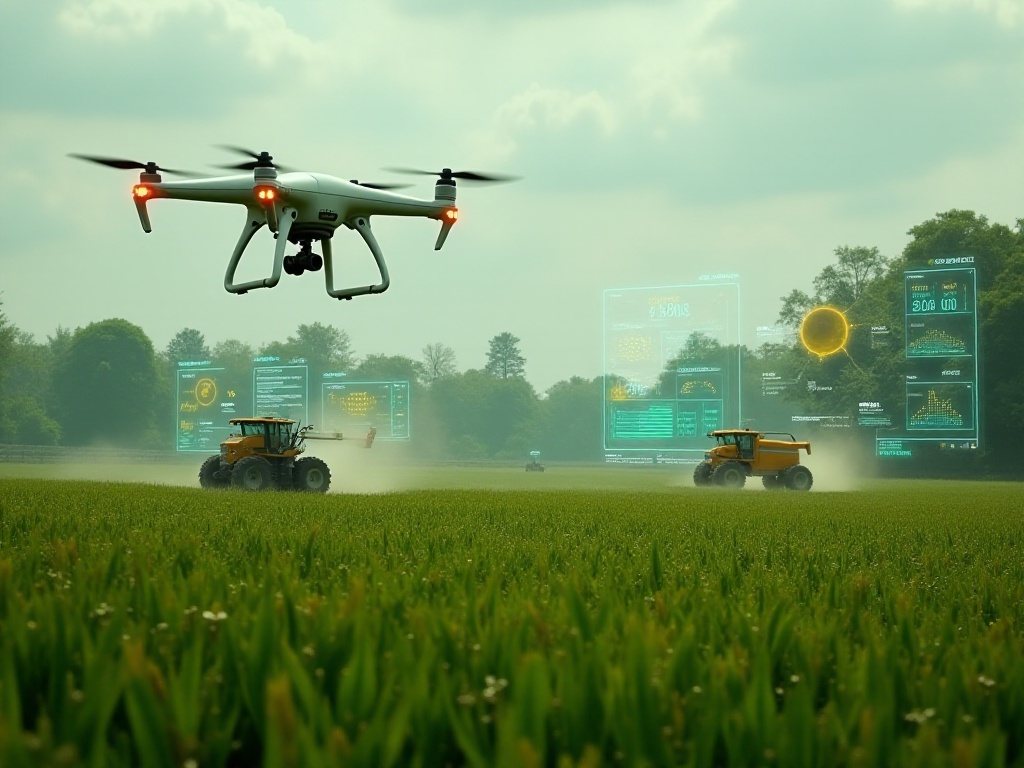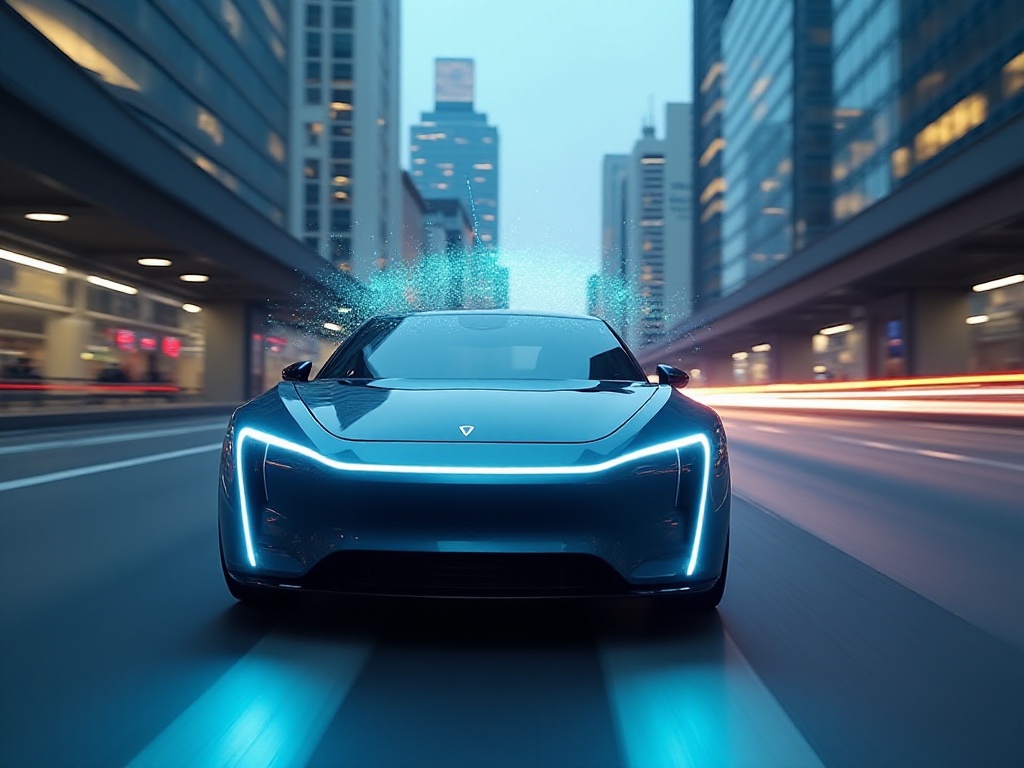Introduction
The first time I saw a robot vacuum, I was completely amazed! That round little cutie moving freely around the house, skillfully avoiding sofas and coffee tables, finding the optimal cleaning route - it was like a scene straight out of a sci-fi movie. Looking back now, AI has actually already seamlessly integrated into our daily lives, bringing many unexpected changes.
Smart Home Intelligence
When it comes to AI applications at home, smart home technology has left the deepest impression on me. Take iRobot's Roomba for example - this is no simple automatic vacuum cleaner. It's equipped with a powerful laser radar scanning system that can precisely map out a 3D layout of the entire room, like a meticulous butler planning the most efficient cleaning route. Even more impressive is its powerful learning ability - it can remember the house layout and know which corners tend to collect dust and need special attention.
Sometimes I stand and watch it work, truly amazed by its level of intelligence. It can not only distinguish between carpets and hard floors but also automatically adjust suction power. When encountering pet hair tangled in carpets, it increases suction; when working on delicate hardwood floors, it operates gently to avoid scratches.
Data shows that households using Roomba save 4 hours of cleaning time per week, meaning we can use that time for more meaningful activities like spending time with family or watching shows. As technology continues to advance, the smart robot vacuum market is growing rapidly, expected to expand from $5.2 billion in 2023 to over $8 billion by 2025, indicating that more and more people are starting to accept and rely on this clever little helper.
Speaking of smart homes, we can't forget to mention the Nest smart thermostat. This little device is absolutely essential for home living! Not only can it automatically adjust indoor temperature, but more impressively, it can learn your living habits. For instance, if it notices you wake up at 7 AM every day, it will adjust the bedroom temperature to the most comfortable level 30 minutes in advance; if it notices you usually go to bed at 11 PM, it will automatically lower the temperature before bedtime, ensuring comfort while saving energy.
After installing Nest in my home, my monthly electricity bills noticeably decreased. According to Nest's data, users save an average of 10-12% on heating costs and 15% on cooling costs. Think about it - this isn't just about saving money, it's also contributing to environmental protection.
Beyond these, today's smart home products have many surprising features. Smart curtains can automatically adjust based on sunlight intensity, smart locks enable keyless entry through facial or fingerprint recognition, and smart refrigerators can monitor food expiration dates and remind you to restock. These features might seem luxurious at first glance, but once you get used to them, you'll find they truly make life more convenient and efficient.

The Smart Assistant Revolution
Let's talk about those ubiquitous smart voice assistants. Honestly, when I first used Siri, I thought it was a bit silly and often couldn't understand what I was saying. But today's voice assistants are impressive - they can understand various accents and comprehend contextual meaning. For example, if you ask "How's the weather today?" and then follow up with "What about tomorrow?" it immediately understands you're asking about tomorrow's weather.
Now, the first thing I do every morning is greet my smart speaker, having it report the day's weather, schedule, and traffic conditions. When driving and wanting to play music, I just use voice control; when cooking with oily hands and needing to check a recipe, I just call out for a voice response. This hands-free feeling is truly addictive.
Speaking of personalized recommendations, Netflix and Amazon's AI systems are incredibly impressive. Netflix's recommendation algorithm is like mind reading, always accurately guessing what type of shows I want to watch. It analyzes my viewing history, time spent watching, fast-forward and rewind behavior, and even adjusts recommendations based on my viewing habits during different time periods.
For instance, it noticed I often watch light comedies on weekend mornings and prefer suspense shows at night, so it recommends corresponding content during these times. Netflix reveals that their recommendation system saves the company over $1 billion in marketing costs annually. Why? Because accurate recommendations help users quickly find content they're interested in, reducing browsing time and improving user satisfaction and retention rates.
Amazon's AI recommendation system is equally impressive. It not only recommends products based on your purchase history but also analyzes your browsing behavior, search keywords, and even items left in your cart to predict what you might need. Sometimes its recommendations are so accurate it's almost scary, as if it can truly read your mind.

Enterprise AI Innovation
In the enterprise application field, AI's performance is even more astounding. Take Siemens' predictive maintenance system as an example - it's like a personal doctor for industrial equipment. By analyzing equipment operational data, such as temperature, vibration, and noise parameters, the AI system can predict potential failures in advance.
Just as we go for health checkups when feeling unwell, the AI system monitors equipment "health" in real-time. If it detects signs of abnormal wear in a component or parameters exceeding normal ranges, it immediately issues warnings. This way, maintenance personnel can perform maintenance before equipment actually fails, avoiding production losses due to sudden breakdowns.
Data shows that companies using this system have reduced equipment downtime by 50% on average, saving millions of dollars in maintenance costs annually. More importantly, it improves production stability and safety, which is particularly crucial in high-risk industries.
In business security, AI applications are equally fascinating. KenSci's risk prediction platform is a great example. In healthcare insurance, fraudulent claims have always been a difficult problem to solve. Traditional manual review methods are time-consuming and prone to oversights. But with AI systems' help, the situation is very different.
This system can quickly identify suspicious claims by analyzing massive amounts of medical data, including medical records, prescriptions, and examination reports. For instance, if it discovers a patient has duplicate examination items at different hospitals, or if certain treatment frequencies are abnormal, the system will automatically flag them for review. Statistics show that the system has a 95% accuracy rate, helping medical institutions recover hundreds of millions of dollars in losses annually.

Future Outlook
Speaking of AI's future development, what excites me most is generative AI. Current AI drawing tools like DALL-E2 and Midjourney can already generate incredible images from text descriptions. You just need to input a description, like "a cat wearing sunglasses playing piano," and the AI can create lifelike images, each with its own unique characteristics.
Even more amazing is Elevenlabs' voice cloning technology. It can perfectly replicate a person's speaking tone and emotions by analyzing their voice characteristics. This technology can be used not only for audiobook production but also in dubbing, broadcasting, and many other fields. Imagine, in the future, we might each have our own AI voice actor, able to read articles in any language we want.
Looking ahead, AI technology's development will surely bring more exciting possibilities. Perhaps in the near future, we'll each have a personal AI assistant that not only understands our habits and preferences but can also predict our needs. For example, it would know what type of music you like, when you most need to relax, and even adjust home lighting and music based on your mood.
However, while enjoying the convenience brought by AI, we also need to consider how to find balance between technology and humanity. Although AI can help us complete many tasks, real human interaction and emotional communication cannot be completely replaced. We need to learn when to "put down our phones" and enjoy real social life.
For instance, while video conferences are convenient, face-to-face conversations more easily create resonance; while social media allows us to keep up with friends' updates anytime, the feeling of having coffee and chatting together is irreplaceable by any technology.
In this era of rapid AI development, we should both embrace the convenience brought by new technology and maintain our ability to think independently. After all, technology is meant to serve humans, not dominate them. I believe that as long as we use AI technology wisely, we can certainly create a better future.
What do you think? What are your thoughts and expectations about AI technology development? Or do you have any interesting experiences using AI products?








